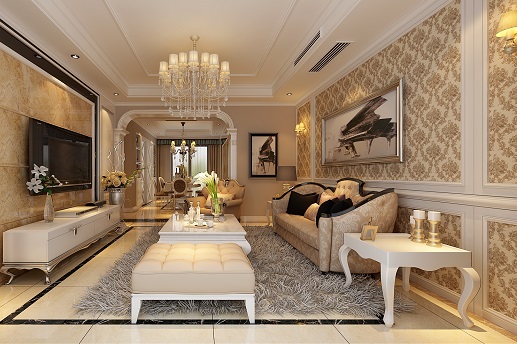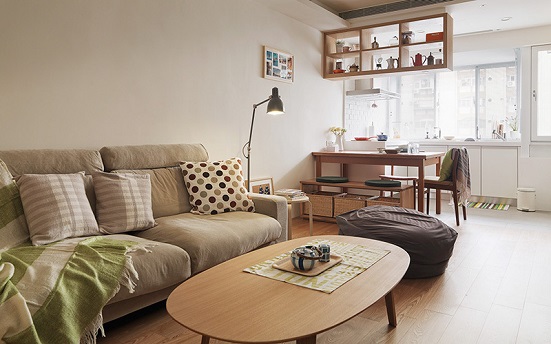On June 10, Wuxi Municipal Market Regulatory Bureau announced the situation of off-line sampling of substandard commodities in the circulation field in 2018. Among them, in the field of plate commodities, famous brand products such as Moganshan, Dawang Coconut and listed company Rabbit Baby's brand, Shenzhou Greeno, have been found to be unqualified, involving projects such as "formaldehyde emission". Among them, some unqualified brands have publicized their products "aldehyde-free addition". To this end, industry insiders said that "aldehyde-free addition" does not mean that the formaldehyde emission is zero.
Formaldehyde Release Quantity of Several Brand Products Unqualified
According to the unqualified plate commodities announced by Wuxi Market Supervision Bureau, in the first half and second half of 2018, many batches of plates labelled as "Moganshan" and "Dawang Coconut" were found to be unqualified. Among them, an impregnated plastic film paper veneer Blockboard named "Moganshan" (Zhejiang Shenghuayunfeng New Material Co., Ltd., the nominal manufacturer), the specification model "1220*2440 mm (rain oak)", the production date/batch number "2017/01/12", "formaldehyde emission" project is not qualified. An ecological lacquer-free board named "Dawang Coconut" (Hangzhou Dawang Coconut Zhihuan Decoration New Material Co., Ltd., nominal manufacturer), specification model "1220 *2440 mm (Milan Gray Oak)", production date/batch number "T18.A.19", "formaldehyde emission, impregnation and peeling performance" are not qualified.

In addition, Xuebao board, Jiangnan Luye, Ansu International, BOXMaLL and other brands of wood-based panels are also on the project "bow". Among them, New Zealand imported solid wood whole core eco-panels (named as "Xuebao Board") with brand name of "Xuebao Board"(named production enterprise Hong Kong Xuebao International Group Limited authorized Ganrong Wood Industry Co., Ltd., specifications and models of "1220*2440 mm (Wanjia Lighting)", production date/batch number "2018/03", "formaldehyde emission" project is not qualified. Reporters found that Xuebao plate in the past two years, many times in the sampling inspection was found to be "formaldehyde emission" unqualified. On 8, 2018, the Wuhan Bureau of Industry and Commerce announced the results of sampling inspection of decoration and decoration materials in the second quarter of Jiangcheng Yard. The formaldehyde emission of "Hong Kong Xuebao" eco-panels produced by Hong Kong Xuebao International Group Co., Ltd. and "Hong Kong Xuebao" eco-panels produced by Ganrong Wood Industry Co., Ltd. are not up to standard.
Formaldehyde emission is one of the key indicators to measure the quality of wood-based panels. At present, most of the adhesives used in the domestic wood-based panel production process are urea-formaldehyde resin adhesives with formaldehyde as the main raw material, but the products manufactured with this adhesives will continuously release formaldehyde. Uses the formaldehyde release quantity unqualified board to manufacture the wooden floor, the wooden door, the furniture, the cabinet and so on products, long-term in the formaldehyde release quantity surpasses the standard environment, the human body health will suffer the enormous harm. The National Standard GB 18580-2017 "Formaldehyde Release Limits in Wood-based Panels and Their Products for Interior Decoration and Decoration Material" which was implemented on May 1 last year stipulates that the formaldehyde emission limit of wood-based panels is 0.124mg/m3 and the limit mark is E1, and unifies the testing method of formaldehyde in wood-based panels and their products as "1 m3 Climate Box Method". The standard stipulates that after May 1, 2018, the wood-based panels and their products sold on the domestic market must meet the requirements of the standard.
"Impregnation and peeling performance" does not meet the standard and affects product life
In addition to "formaldehyde emission", in this sampling inspection, many batches of products of Moganshan, Dawang Coconut, Xuebao Plate, Shenzhou Oeno and other brands also failed to meet the "dipping and peeling performance" standard, and even many brand products of listed companies.
Among them, an impregnated paper veneer plywood labeled as "Shenzhou Green Field" (labeled production company Dehua Rabbit Baby Decoration New Material Co., Ltd., specifications and models of "1220 *2440 mm (white sandalwood)", production date/batch number "2016 1129") "impregnation peeling performance" project is not qualified. Dehua Rabbit Baby Decoration New Material Co., Ltd. is a A-share listed company, which is referred to as "Rabbit Baby" for short. In the introduction of its official website, it can be seen that the products under the "Shenzhou Green Field" include panels, wardrobes, floors, wooden doors and other home decoration products.
"Impregnating peeling property" was used to investigate whether there were peeling and delamination phenomena between the adhesives of wood-based panels or between the veneer layer and the base material. Rough production process control, loose base material, poor uniformity of sizing or poor water resistance of glue may lead to unqualified testing of the project. Using such board to process furniture or decoration and decoration will shorten the service life of finished products. Once the relative humidity in the room is high, the furniture or decoration and decoration items will be seriously deformed or even scrapped.
Wood-based panels are the production materials of furniture, flooring, cabinets and other home decoration wood products, which are closely related to consumers. There are many well-known brands in the enterprises whose products are not up to standard. They are not only closely related to downstream production enterprises, but also produce wood products. If the production of sheet metal is not strictly controlled, the unqualified sheet metal will probably flow directly into the consumer's family.
In this sample inspection, three products of Ansu Home Limited Company, the label "Ansu International" and the label manufacturer Ansu Home Limited Company, were found to be unqualified. Reporter inquiries found that in order to avoid paint panels and various solid wood accessories as the main products, Ansu International also produces wardrobes, cabinets, bookcases, tables, ceiling, background walls and other household products, and "ANSU Ansui Home" as the brand for sales. In addition, well-known wood-based panels such as Moganshan and Shenzhou Oeno also produce wardrobes, floors, wooden doors and other downstream wood products, and some even set foot in the field of customized household, providing the whole line of household wood products.
■ Industry observation
No Formaldehyde Addition No Formaldehyde Release
Reporters learned that in this sample of unqualified brands, many brands in their official website introduction that product performance is better than the national standard, and even used the words "environmental protection", "green", "aldehyde-free".
It can be seen on the official website of Dawang Coconut, "Dawang coconut board in the production process of environmental protection soybean gum, three aldehyde removal processes, effective removal of formaldehyde and other harmful substances, so that the formaldehyde release of finished products reached the level of Dawang coconut aldehyde-free enterprise standard, better than three times." Moganshan official website also mentioned: "In 2009, Moganshan started to use corn starch glue to make wood-based panels and floors, pushing China's wood-based panels and floor products into an era without adding aldehyde." "The appearance quality, processing accuracy and physical and mechanical properties of the boards in Mogan Mountains meet the requirements of the national standards, and the formaldehyde emission should meet the requirements of the national mandatory standards."
Industry insiders said that "formaldehyde-free" means that formaldehyde is not added outside the production process, but because the air, water and wood in life contain formaldehyde, "formaldehyde-free" does not mean that the product formaldehyde release is zero. The group standard T/CNFPIA 3002-2018 "formaldehyde-free wood-based panels and their products" issued in August 2018 mentioned that "formaldehyde-free" wood-based panels should not use adhesives with formaldehyde raw materials in the production process, and should also be limited in the main product indicators, defining "formaldehyde-free" from the production process and product testing.
In addition to adhesives, the production of wood-based panels need to go through a number of processing links, such as substrate treatment, painting and so on. If we want to achieve excellent environmental protection performance of products, we need to "aldehyde-free" in all production links.
The head of a well-known chemical enterprise said that there are many "formaldehyde-free adhesives" on the market at present, including polyurethane adhesives, soybean adhesives and so on. Although the products produced with these formaldehyde-free adhesives can improve the environmental protection performance, there are also differences in other properties. Some manufacturers neglect other properties in order to pursue "aldehyde-free", resulting in poor water resistance of adhesives, and the use of such products may lead to the stripping of wood-based panels.
Industry insiders said that consumers should not be confused by corporate propaganda when choosing related products. When purchasing, it is better to ask the merchants to provide product testing reports and buy products at ease.
label:









 Home
Home


